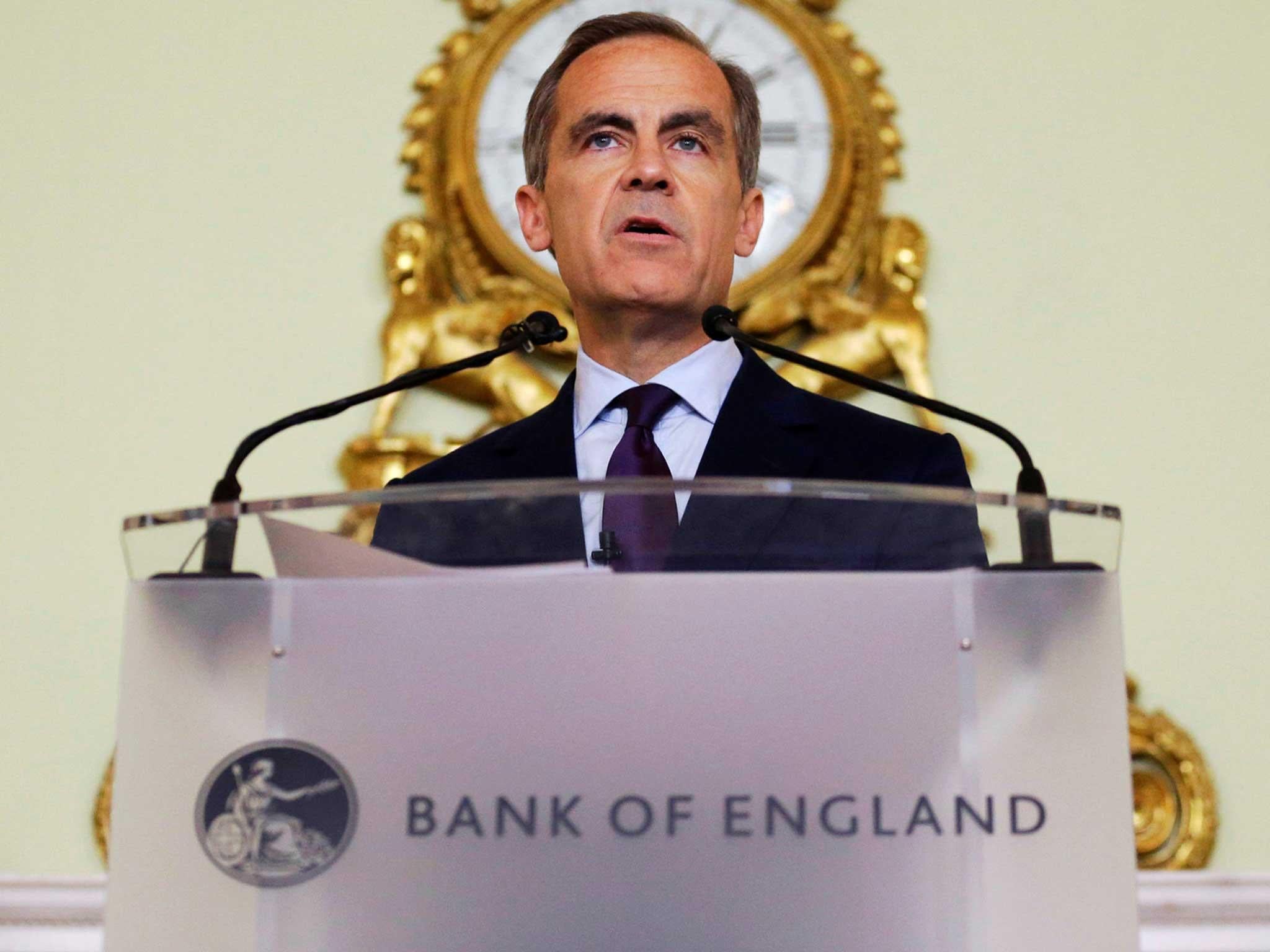We should be grateful for Mark Carney's uniquely calm response to Brexit
The past few weeks have shown that the supposed Rolls Royce of Britain’s civil service is in fact vulnerable to major shocks, and when such shocks strike the burden increasingly falls on other institutions – primarily, the Bank – to manage the trauma

Your support helps us to tell the story
From reproductive rights to climate change to Big Tech, The Independent is on the ground when the story is developing. Whether it's investigating the financials of Elon Musk's pro-Trump PAC or producing our latest documentary, 'The A Word', which shines a light on the American women fighting for reproductive rights, we know how important it is to parse out the facts from the messaging.
At such a critical moment in US history, we need reporters on the ground. Your donation allows us to keep sending journalists to speak to both sides of the story.
The Independent is trusted by Americans across the entire political spectrum. And unlike many other quality news outlets, we choose not to lock Americans out of our reporting and analysis with paywalls. We believe quality journalism should be available to everyone, paid for by those who can afford it.
Your support makes all the difference.Thank goodness for Mark Carney. Or rather thank George Osborne. Or maybe Gordon Brown. Or Ed Balls.
Historians ought to give Brown and Balls due credit for their wisdom in granting independence to the Bank of England soon after Labour were elected in 1997. They ought, too, to give the current Chancellor his due for scouring the world in search of the top banking talent before alighting on Carney. And members of the British public ought to thank Carney for the leadership and authority that he has shown over the past, hugely turbulent week.
As this column noted last week, the Governor has stepped into the vacuum left by the latest shenanigans in Westminster by reassuring markets and investors and plotting a route to macroeconomic stability. His intervention yesterday was justified and well-timed. Telling banks they need not work so hard to build a rainy day fund, and should focus instead on lending, was an example of lessons from the financial crisis being learned.
It was precisely the lack of rainy day funds at banks high on debt and low on capital that caused a financial crisis in the US sub-prime sector to bring the world to the brink of Depression. With banks now in a much healthier condition – that is, with higher capital ratios – it is right that in the very rainy days prompted by the vote to leave the EU, they are encouraged to ensure the flow of credit through the economy is well lubricated.
Last week Carney deployed a combination of chutzpah and candour to say that his warnings about the impact of Brexit on the economy had proven correct. He was right, just as he was right to sound the alarm before the vote. In his press conference yesterday, Carney repeated his assurance that any further monetary easing would be well targeted and that fragility in the financial markets was manageable.
The aim of this proactive approach is to ensure that the twin pillars of the Bank’s approach, monetary and financial policy, are working in cahoots with each other. Carney is also specifically trying to foresee a downturn in the British economy, which might be precipitated by, among other things, a sudden drying up of foreign investment in the property sector.
In all this, the Governor has shown a calibre that is sorely and desperately lacking from our political class at the moment. With the three most popular parties at the last general election essentially leaderless, it is remarkable how dependent for stability and guidance we have become on a Canadian former Goldman Sachs executive. Remarkable and worrying.
The past few weeks have shown that the supposed Rolls Royce of Britain’s civil service is in fact vulnerable to major shocks, and when such shocks strike the burden increasingly falls on other institutions – primarily, the Bank – to manage the trauma. In just two decades, a fairly short space of time, the Governor of the Bank has gone from being a crucial figure in our Establishment to perhaps the most important, and financially consequential, person in the country at a time of crisis.
Like we said last week, it’s a huge bloody relief that Carney is up to the job.
Join our commenting forum
Join thought-provoking conversations, follow other Independent readers and see their replies
Comments